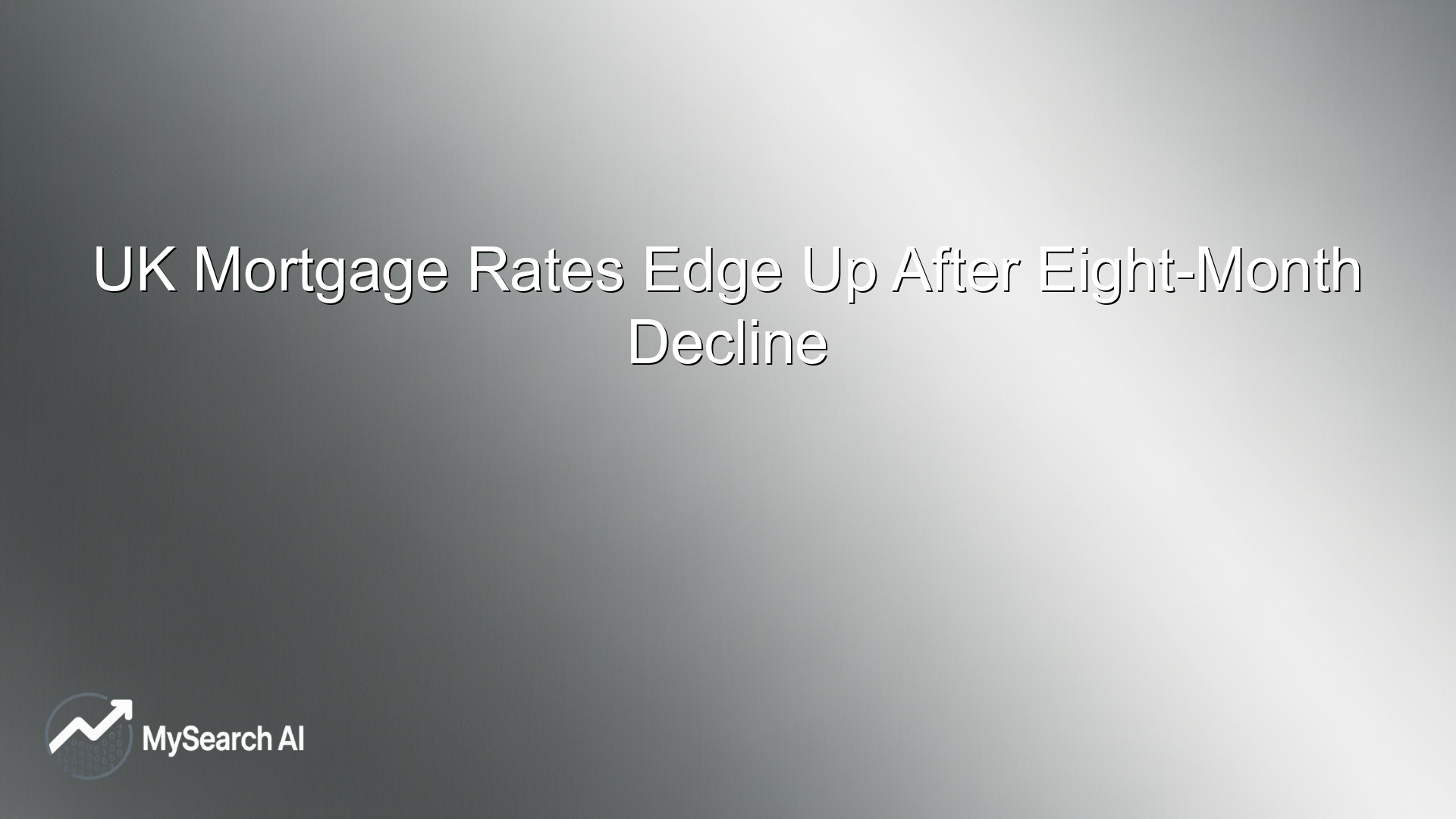Related Articles
Ask anything about stocks
UK Mortgage Rates Edge Up After Eight-Month Decline
For the first time in eight months, UK mortgage rates have shown an upward movement. According to the latest Moneyfacts report, the average two-year fixed mortgage rate has increased to 4.98%, up by 0.02%, while the five-year fixed rate has reached 5.02%. This comes after a steady decline since February 2025, influenced by volatile swap rates and lender caution. Understanding these shifts is crucial for homebuyers and investors navigating the current UK housing market.
The Current Landscape of UK Mortgage Rates
The UK mortgage market has been experiencing fluctuations, with mortgage rates showing a decline over the past several months. The increase in rates reported by Moneyfacts marks a pivotal point. The average two- and five-year fixed mortgage rates have both edged up by 0.02%. This reflects a subtle yet significant change, as homebuyers must now navigate slightly higher borrowing costs during an already challenging economic period. The surge in these rates is primarily due to volatile swap rates. These swap rates dictate the pricing of fixed mortgage products and have recently been unpredictable. Additionally, lenders have exhibited caution, reflecting broader economic uncertainties.
What This Means for Homebuyers and Investors
For those looking to secure a mortgage, this rise in rates might impact decision-making. Homebuyers may face increased monthly payments compared to those who secured their mortgages earlier in the year. Investors and property buyers should also be aware of the potential long-term implications in the housing market. With rates edging up, the cost of borrowing could influence the overall demand for housing and, consequently, property prices. This move signals a possible shift in market conditions, urging both buyers and investors to re-evaluate their strategies in light of changing financial landscapes.
Lender Caution and Economic Impacts
Lenders have been notably cautious, reflecting broader concerns within the financial markets. The slight increase in mortgage rates might be an early indicator of a more cautious lending environment in response to economic signals. According to Moneyfacts, this cautious outlook isn’t unfounded. Lenders are balancing the dual pressures of maintaining competitiveness while managing risks associated with a volatile economic backdrop. This adds a layer of complexity for borrowers, who must now be more strategic in their financial planning. For continuous insights into such trends, platforms like Meyka offer AI-powered predictive analytics, helping users stay informed in real-time.
Expert Reactions and Market Sentiment
Experts suggest that this rise may be just the beginning. While the increase is currently modest, it could indicate broader changes in how lenders set mortgage rates. Recent social media discussion—from industry professionals—shows a mix of surprise and acceptance, as lenders begin to adjust to market demands. Homebuyers and investors should stay vigilant, keeping an eye on further developments to gauge the longer-term trends in mortgage rates. Understanding these dynamics will be crucial for making informed financial decisions.
Final Thoughts
The slight rise in UK mortgage rates after an eight-month decline marks an important development for both buyers and investors. While the increase is minor, it could signal more significant shifts in the financial landscape. Lender caution and volatile swap rates are crucial factors to watch. As the market adapts, staying informed through tools like Meyka for real-time insights can assist in navigating these changes effectively. Ensuring a proactive approach to these market conditions will be key in safeguarding investments and making sound financial decisions.
FAQs
Why have UK mortgage rates increased after eight months?
UK mortgage rates have climbed due to volatile swap rates and lender caution. After an eight-month decline, these factors have contributed to the rise, indicating possible shifts in the economic environment.
How does the increase in mortgage rates affect homebuyers?
The increase in mortgage rates means higher monthly payments for new borrowers. Existing homeowners may not be directly affected unless they're refinancing, but the rise influences overall housing market dynamics.
What are swap rates, and how do they impact mortgage rates?
Swap rates are agreements between financial institutions to exchange interest rate payments. They influence the cost of borrowing in fixed mortgage rates. When swap rates rise, lenders often increase mortgage rates to balance their risks.
Disclaimer:
This is for information only, not financial advice. Always do your research.



